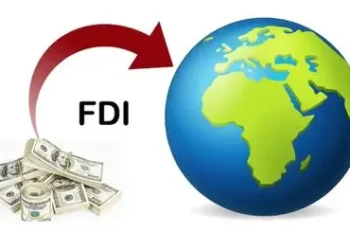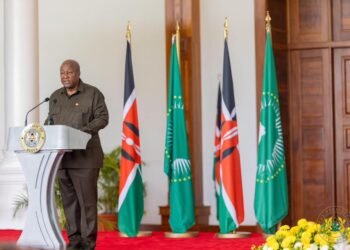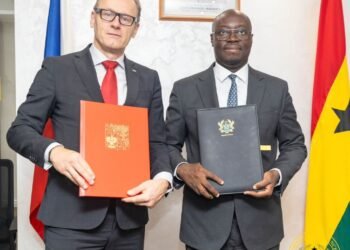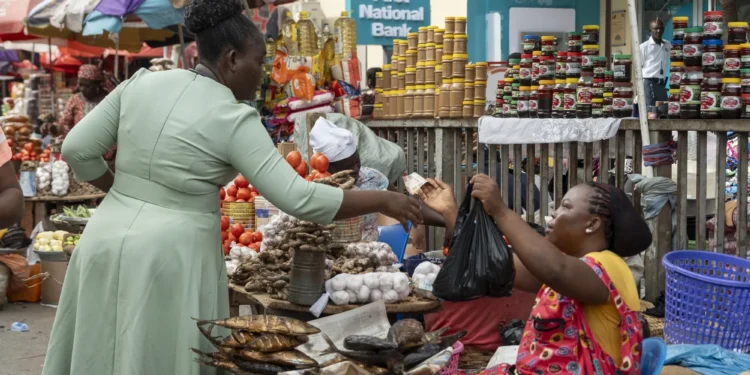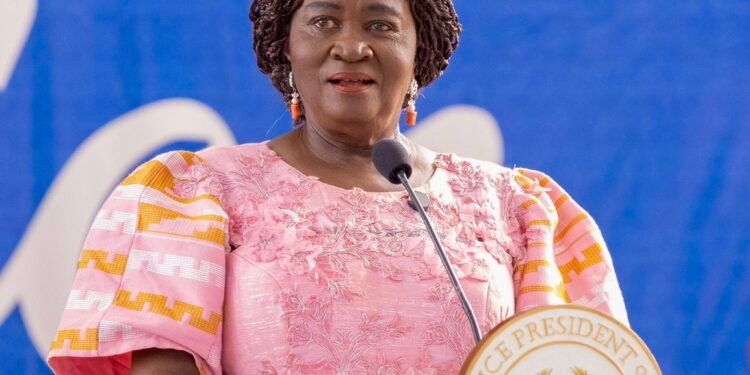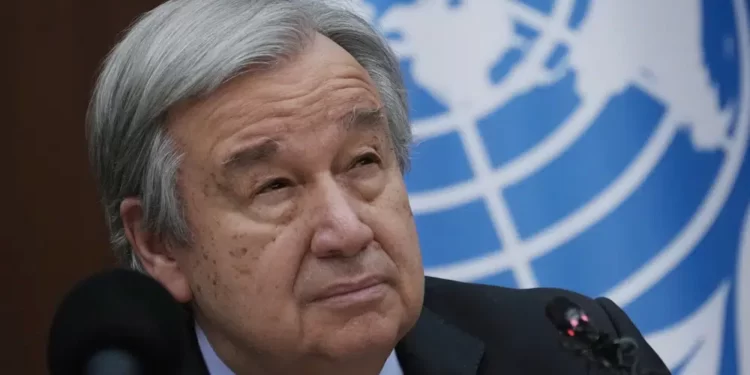Economist and Professor of Finance at the University of Ghana Business School Professor Godfred Bokpin has backed President Mahama’s decision on the revision of Ghana’s IMF Deal.
According to him, “the idea of taking a critical look at the program and with the possibility of extending should not be off the table.” He partially aligns with the President’s stance, acknowledging the need for a review of the program and emphasizing fiscal consolidation measures.
“If you look at the original program, the fiscal consolidation measures were predicated heavily on revenue enhancements contributing at least more than almost 60% of the fiscal adjustment compared to expenditure cuts.’’
Prof. Godfred Bokpin Professor of Finance University of Ghana Business
Consequently, given the limited timeframe, the government opted for more tax handles and an expansion of existing ones. While these measures yielded positive revenue outcomes, they also imposed significant burdens on taxpayers. “Of course, the results have not been that good in terms of its impact on taxpayers,” Professor Bokpin acknowledged.
Despite these challenges, Prof. Bokpin recognized Ghana’s impressive revenue performance under the IMF-supported program.
“If you look at the revenue numbers and the first structural reform under the IMF support program, which okays the development of the medium-term revenue strategy, you can see that we are ahead of ourselves in terms of the target we set under the medium-term revenue strategy.”
“We had agreed with the IMF as well that we’re going to do a revenue-to-GDP ratio of about 18.7% by 2027. If you look at the numbers that are coming in, it looks like probably by the end of 2025, we could be reaching that.”
Prof. Godfred Bokpin Professor of Finance University of Ghana Business
For the current year, Prof. Bokpin estimated that Ghana’s revenue-to-GDP ratio might hit approximately 17.1%, leaving just a 1% gap to the 2027 target.
“If you look at a country like Ghana, to the extent that our economy is not largely taxable because we are not growing a taxable economy.”
Prof. Godfred Bokpin Professor of Finance University of Ghana Business
He pointed out that structural limitation affects the government’s ability to generate sufficient tax revenue.
“The conventional idea of benchmarking your tax revenue by the size of your economy may not be totally relevant for the nature of our economies and all of that compared to advanced economies.”
Prof. Godfred Bokpin Professor of Finance University of Ghana Business
He elaborated that developed economies have spent decades building a robust taxable base, whereas Ghana’s economy is still evolving in that regard.
“In fact, if you look at the data, just around 41% of the GDP contributes about 86% of the tax revenue, the majority of the economy, therefore, contributes only 40% of tax revenue. The bigger percentage of our economy is contributing just about 40% of tax revenue.’’
Prof. Godfred Bokpin Professor of Finance University of Ghana Business
The Risk of Overburdening Taxpayers

Prof. Bokpin cautioned that an over-reliance on the existing tax base could have dire consequences.
“Any strategy to collect more tax revenue, if we are not careful, will be burdening the faithful few and by the time you realize you have actually killed the chicken that lays the golden egg.”
Prof. Godfred Bokpin Professor of Finance University of Ghana Business
He further explained that Ghana’s IMF-supported program, while yielding short-term gains, might compromise the country’s medium to long-term economic sustainability.
One major issue raised by Prof. Bokpin is the disproportionate burden of fiscal adjustments under the IMF program.
“The IMF comes in, introduces all kinds of measures—fiscal consolidation, the burden of adjustment disproportionately distributed—and then this time around, we are also doing debt treatment.”
“More than 90% of the fiscal relief from the domestic and external debt restructuring would all be utilized once the IMF program is in place. And this is designed to give the program maximum space to be able to deliver on its objectives. Then the IMF will take the credit. The situation was that bad. We moved in and we got the result.”
Prof. Godfred Bokpin Professor of Finance University of Ghana Business
However, Professor Bokpin questioned the sustainability of these measures once the IMF exits.
Prof. Godfred Bokpin’s analysis presents a critical perspective on Ghana’s IMF-supported economic strategy. While acknowledging the short-term gains achieved through fiscal consolidation and revenue enhancement, he warns against overburdening taxpayers and compromising long-term economic resilience.
His concerns about post-IMF sustainability and the disproportionate impact of fiscal adjustments underscore the need for a carefully calibrated economic strategy moving forward.
As Ghana approaches its revenue targets ahead of schedule, the government must ensure that policies remain balanced, equitable, and sustainable beyond the IMF program.
READ ALSO; Musician Decries Underappreciation of English Rappers in Ghana





